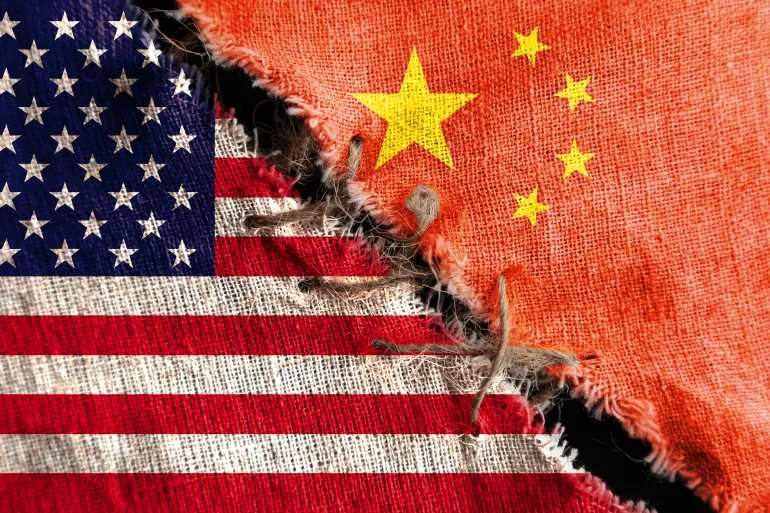Bloomberg: Beijing Responds to Washington with a 'Trump-like' Style in the Trade War

China has adopted a new aggressive approach in its trade confrontation with the United States, described by Bloomberg as a 'Trump-style' method. This Chinese move came in response to recent U.S. sanctions and tariffs, including imposing restrictions on the export of rare minerals and threatening major shipping companies with potential sanctions, indicating an escalation in the confrontation between the two powers.
Mutual Confrontations and Market Impacts
The Chinese actions coincided with the United States implementing new tariffs on a range of Chinese imports, from timber to household cabinets. Bloomberg reported that Beijing's announcement of strict restrictions on rare mineral exports shocked global markets, especially since the restrictions include even foreign shipments containing Chinese components.
The Chinese Trump-like Style
Teng Lu, chief economist at Nomura Bank, stated that China is adopting negotiation tactics similar to Trump's style, including maximum opening offers, exploiting weaknesses, and threats of withdrawal. Bloomberg explains that Beijing is using these tools to build leverage ahead of bilateral meetings with the United States.
Washington's Response and Industry Warnings
U.S. Treasury Secretary Scott Pruitt described the Chinese restrictions as a direct targeting of industrial supply chains in the free world, noting that the United States will not allow Beijing to dictate how to manage the global trading system. Despite the escalation, preparatory meetings between the two sides continue this week in Washington in preparation for high-level meetings.
Markets Between Panic and Hope
Global markets fell following the U.S. president's announcement of additional tariffs, but they regained some of their losses after indications of a 'calming path'. However, China's sanctions on U.S. units of a South Korean shipping company rekindled fears and led to market fluctuations.
China Armed with Rare Minerals
Bloomberg believes that Beijing's escalation reveals how it uses the same pressure tools that Trump relied on, especially through restrictions on critical minerals that account for 70% of global production, giving China a strategic leverage card in any trade negotiations.
Diverse Scenarios and Open Risks
Goldman Sachs analysts note that the current trade dispute 'has broadened the range of possibilities for the global economy', with the basic likelihood remaining that both sides may back away from the most extreme steps. At the same time, the uncertainty of negotiations increases the fragility of the international trading system and forces companies to redraw supply maps to face the new economic fragmentation.
> What is happening today is no longer just a 'tariff war', but has turned into a race for influence over technology and value chains between two powers using economic pressure tools, selective sanctions, and maneuvering in sensitive markets.